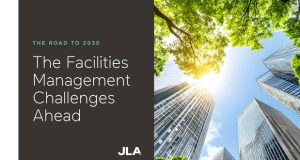An enhanced Acquisitions Sustainability Toolkit, designed to support commercial property owners in assessing the sustainability characteristics of buildings during the acquisition phase has been launched by the Better Buildings Partnership (BBP).
The refreshed Toolkit provides a detailed sustainability checklist for assessing buildings during due diligence, covering topics including net zero carbon, climate resilience, environmental regulation, and biodiversity. The checklist empowers users to understand which sustainability factors are likely to impact asset value or require capital investment, offering guidance on the appropriate checks to undertake at various stages as deals progress.
The Toolkit also provides ‘decision trees’ to support ESG and investment teams in navigating more complex sustainability considerations, crucial to investment decisions. Additionally, the Toolkit features a section to support the onboarding of new assets into property management processes, while maintaining a focus on sustainability outcomes.
While principally targeting commercial property owners engaged in asset transactions, the update acknowledges the pivotal roles of property managers / managing agents, lenders and advisors / consultants in the acquisition due diligence process. User guidance is provided for these stakeholders, with lenders benefiting from a set of priority sustainability considerations.
Sarah Ratcliffe, CEO, Better Buildings Partnership said: “Having the right knowledge to inform commercial property acquisition decisions could not be more important as investors seek to manage the risks and opportunities that sustainability presents. We hope that this updated Toolkit, co-created with our members will provide the industry with a practical tool that aligns with the transaction process, facilitating the timely provision of information and a robust approach to integrating assets and aligning them with portfolio sustainability strategies.”
To support greater alignment and standardisation across the industry, the Sustainability Investment Checklist was also mapped against other relevant resources developed by CREFCE, INREV, RICS and ULI. This was a highly collaborative effort bringing together a diverse group of over fifty industry stakeholders including property owners, advisors, agents and lenders to provide valuable insights and experience.
Over the past year, Eptura has used proprietary data and commissioned research to explore how business leaders can balance opposing demands.
In this final summary report on the state of the workplace in 2023, the global worktech leader looks at the key insights that will shape the world of work in 2024 and beyond.
For the Q4 edition of the 2023 Workplace Index, Eptura updated its proprietary data across four demands:
- Freedom and Connection
- Value creation and Cost Control
- Flexibility and Certainty
- CO2 Targets and Costs
To download the report click here.




